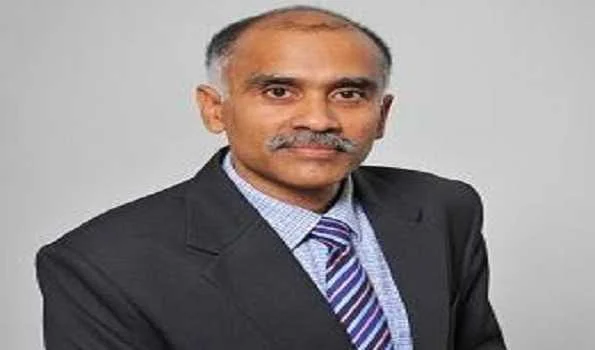New York / New Delhi July 23 . Reaffirming its unwavering commitment to international peace, security, and multilateral cooperation , India delivered a strong condemnation of Pakistan at the United Nations Security Council’s High-Level Open Debate, calling out Islamabad’s “continued sponsorship of cross-border terrorism.”
Referencing the recent counterterrorism operation launched in response to the deadly Pahalgam attack, India’s Permanent Representative to the UN, Ambassador Parvathaneni Harish, underscored the mounting threat posed by proxy warfare. He warned that modern conflicts are increasingly shaped by non-state actors enabled by complicit state sponsorship.
In a pointed response to Pakistan, Harish drew a stark contrast between the two nations. “On one side stands India — a vibrant democracy, an ascending economy, and a pluralistic society. On the other is Pakistan — caught in the grip of fanaticism, terrorism, and chronic dependence on international bailouts. It ill behoves any member of this Council to preach while engaging in conduct that the world unequivocally condemns,” he said.
Citing the terror attack in Pahalgam, Jammu and Kashmir, which claimed 26 innocent lives, Harish said India launched Operation Sindoor —a targeted, proportionate, and non-escalatory strike on terrorist camps located in Pakistan and Pakistan-occupied Jammu and Kashmir. “The operation concluded swiftly after meeting its objectives — at Pakistan’s own request,” he noted.
“There cannot be a one-size-fits-all approach to dispute resolution. Changing realities and evolving geopolitical dynamics must inform our responses,” Harish stated at the high-level debate.
The envoy reaffirmed India’s long-standing constructive role in the global order, saying, “As a founding member of the UN, India has consistently worked with international partners to foster a more peaceful, prosperous, just, and equitable world.”
Emphasizing the need for institutional reforms imperative for ground realities of today’s world, Ambassador Harish noted that the “global security architecture must adapt to contemporary threats such as terrorism, radicalization, and asymmetric warfare”. He stressed that the relevance of the UN Security Council is under increasing scrutiny and called for urgent reforms to restore its credibility and effectiveness.
The Ambassador highlighted India’s robust contributions to UN initiatives — from peacekeeping and sustainable development to humanitarian assistance. He underlined India’s distinction as the largest cumulative contributor to UN peacekeeping missions and a pioneer in advancing the role of women in peacekeeping, whose presence in conflict zones, he said, continues to inspire globally. “From peace and security to decolonisation and fair trade, India’s commitment to multilateralism remains both principled and pragmatic,” he added.
He also cited India’s leadership in climate action, disaster resilience, global health, and development partnerships. “India believes in multilateral cooperation to address global challenges. We have consistently been among the first responders in regional humanitarian crises and have partnered with the UN in innovative development cooperation efforts.”
He reiterated the need for accountability in international relations. “States that violate international norms and sponsor cross-border terrorism must face serious consequences,” he asserted.
Addressing the changing landscape of global conflict resolution, Harish spoke of the future of UN peacekeeping and the increasing relevance of peacebuilding. “Regional organisations, such as the African Union, have effectively contributed to resolving disputes among member states. This must be further encouraged.”
Invoking Chapter VI of the UN Charter, he emphasized the principle of peaceful dispute settlement. “It is the responsibility of the disputing parties to pursue solutions by peaceful means of their choice. National ownership and mutual consent are essential for any lasting peace process.”
. . PRS










